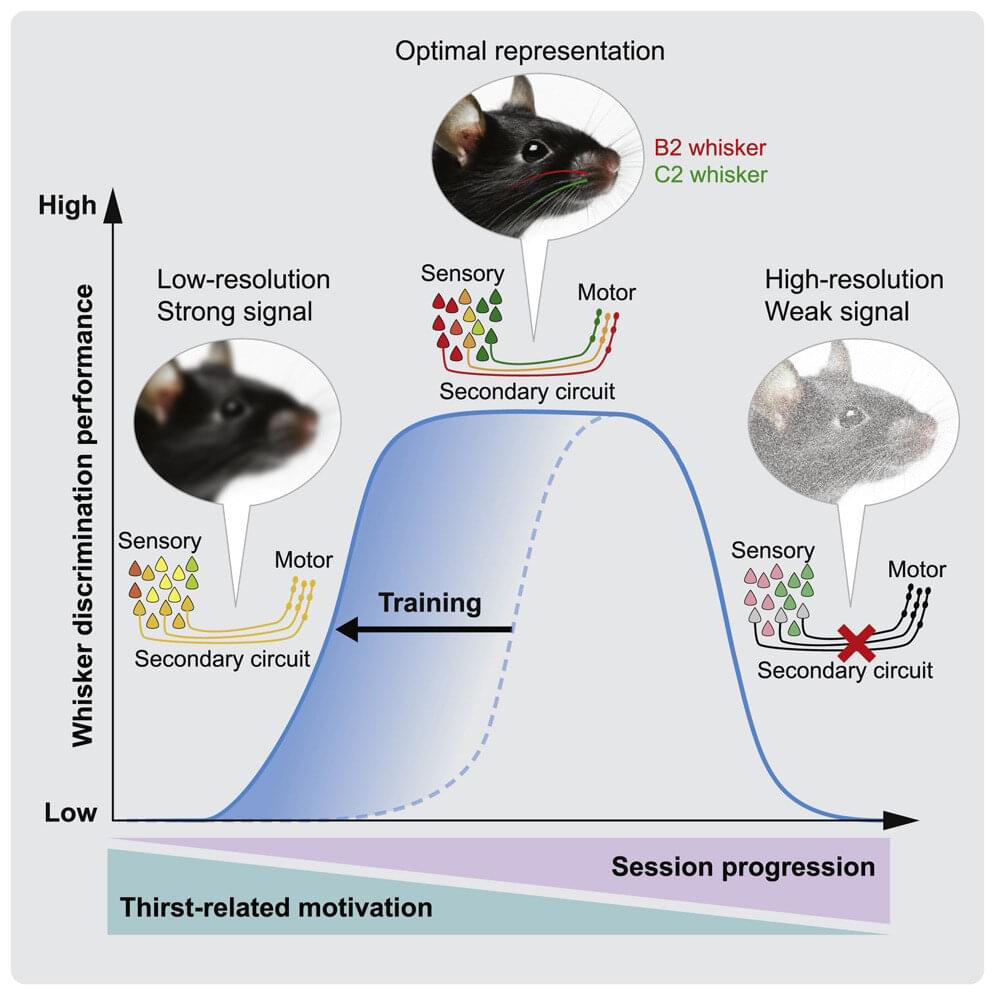In a good or a bad mood, focused or distracted, our internal states directly influence our perceptions and decision-making. While the role of motivation on the performance of behavioral tasks has been known for more than a century—thanks to the work of psychologists Robert Yerkes and John Dilligham Dodson—its precise effect on the brain remains unclear.
A team from the University of Geneva (UNIGE), in collaboration with the EPFL, has revealed how motivation alters the neural circuits responsible for sensory perception preceding decision-making in mice. This study reveals why a level of motivation that is too high or too low can affect our perception and therefore our choices. These results, featured in the journal Neuron, open up new perspectives in learning methods.
Going to work early in the morning, choosing a restaurant at lunchtime: many of our decisions are motivated by needs such as earning a living or satisfying our hunger. However, decision-making is a complex process, which can also be influenced by external factors, such as the environment or other individuals, and by our internal states, such as our mood, our level of attention or our degree of motivation.
